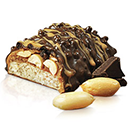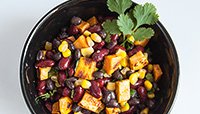Protein supplements are simple, economical tools that help people increase their protein intake while controlling how many carbohydrates they consume. Many people on low carb diets find that powders and bars are also especially helpful as quick, on the go, meals. However, the next time you look for low carb foods and supplements, things will look a little different.

If you're already an avid low carb supplement user you will notice it is becoming more difficult to find low carbohydrate foods and supplements. The products aren't changing, but the packaging will be. This is because the Food and Drug Administration (FDA) has asked all food and supplement makers not to use the term "low carb" or "low carbohydrate" on any packaging until the Federal Government issues office guidelines on the topic.
Why?
You may not be aware of it, but regulations do currently exist about what can be called low fat, low cholesterol, and low sodium. However, guidelines have not been established for carbohydrates. This is because carbohydrate content generally was not a concern for people until a variety of weight loss plans that restricted this nutrient became poplular. So, now we must wait for the FDA to establish guidelines before you will see low carbohydrate (or low carb) on packaging.
In the meantime, you'll have to check the nutrition facts panel for carbohydrate content and decide what fits into your program. (Don't forget to be realistic - an 8 oz. glass of skim milk contains more than 10 grams of carbs and 20 grams of carbohydrates is less that you'll find in an 8 oz. serving of yogurt!) It is also important to remember that not all carbohydrates act the same in the body. For example many dietary fibers are non-digestible, so they do not add to the calorie content or raise blood sugar levels.
What Will Be Different?
If it is already a habit for you to check supplement / nutrition facts panels you'll notice that the carbohydrate content of most powdered meal replacements will remain the same. Yet fans of nutritional bars will notice an increase in total carbohydrates, but there is no need to give up the convenience of these bars. This change is a result of a recent FDA ruling that requires nutrients, which are chemically classified as polyols or sugar alcohols, to be listed as part of this number.
Alcohol In Protein Bars?

This is a different kind of alcohol then you find at a liquor store. In fact the alcohol in protein bars is a syrupy substance that is colorless and odorless yet sweet-tasting. Its chemical structure easily creates a strong bond with water molecules so it functions to keep moisture from evaporating and not allow the bar to become hard enough to chip a tooth on. The only other nutrients that are as effective at preventing bars from hardening are concentrated corn or rice syrups and fat. Because it would require quite a lot of sugars and/or fat to preserve the softness of a bar, it's obvious why you wouldn't want these ingredients.
Alcohols Or Carbohydrates?
So, why would the alcohols in a nutritional bar be listed as a carbohydrate? The reason has more to do with the current format of nutrition facts panels than any other fact. Here's why the alcohols used in these bars to help minimize sugar content (they are also used in sugar free candies) and create a soft pleasing texture, contain less than/or equal to 4.32 calories per gram. The fact that they have a caloric value presents a problem for the way supplement and nutrition facts panels are configured because there are only threee calorie yielding categories - proteins, carbohydrates and fats.
Here's how it works
Multiply:
The grams (g) of carbohydrates by 4
The grams (g) of protein by 4
The grams (g) of fat by 9
Then add all those answers and you should get the total number of calories in a serving.
Note: There may be a difference between your calculations and what you see on the label (5% + or -) as a result of rounding regulations.
Example
290 Calorie Bar with 30 g of Protein, 7 g Carbs, & 7 g Fat.
7 g of carbs X 4 = 28 calories +
30 g of protein X 4 = 120 calories +
7 g of fat X 9 = 63 calories =
211 calories
So That Means That
290 (total calories) - 211 ( calories from carbs, protein, and fat) = 79 calories from sugar alcohols. 79 divided by 4.32 (calories per gram of Glycerine) = approximately 18 grams of sugar alcohols per bar.
In order for this to work, all ingredients with caloric values must be classified in one of these three categories. If you tried this with nutritional bars in the past, the number you arrived at would be significantly lower than the calorie content listed on the label. So instead of rewriting all the textbooks, they had to decide where these nutrients could be forced into one of the categories. They couldn't be grouped with fats because they only contain 4.32 calories per gram where fats contain 9. And although they're close in calorie content to both protein and carbohydrates they were ruled out of protein category because they don't include any nitrogen-containing molecules (a characteristic used to classify nutrients as proteins). So they are grouped with carbohydrates, which seems to make sense given their molecular make-up and a sweet taste.
Do low carb dieters need to account for sugar alcohols as part of their carbohydrate restriction?

To answer that, lets look at the theory behind low carb diets. The idea is that by limiting carbohydrate intake (mostly the refined variety - i.e. sugars) blood glucose levels will be kept low and in turn control the amount of insulin (the hormone that regulates sugar metabolism). All this is done with the notion that this will force your body to burn fat (including excess body fat) instead of carbohydrates for fuel and you will lose weight.
The reason these sugar alcohols were not included as part of the total carbohydrate count before is because: 1) they are not a carbohydrate, at least not in the traditional sense; 2) most people who are looking for low carbohydrate foods, bars, meal replacements, etc are concerned with a blood glucose spike that amplifies their body's insulin reaction to food - sugar alcohols do not significantly affect blood glucose and insulin levels. You want evidence? The lives of people with diabetes depend upon careful attention to and control of their blood sugar (glucose) levels and sugar alcohols have been used for many years to make suitable for diabetics because it has a negligible effect on blood glucose levels.
So, the next time you pick up your favorite protein bar you may see a significant ( 15 grams or more!) increase in the "Total Carbohydrates" listing. Before you throw it back, check if the increase is accounted for in a section below "Sugar" and "Dietary Fiber" called "Sugar Alcohols".
Some companies may try to find a clever way to defy the FDA and not count sugar alcohols (such as Glycerine of Glycerol, Xylitol, Maltitol, and Sorbitol) under total carbohydrates, However, you will be able to tell there is something shady going on in the carbohydrate content of your favorite (formerly low carb) bar does not show a significant spike in the total carbohydrate listing on the packaging. Reputable companies will comply with this new legislation. If you notice that a company is not you may want to reconsider using their products. If these companies are not familiar with this new labeling legislations or they are intentionally disregarding them, it may be and indication of ignorant or deceptive business practices and entrusting your health, fitness, and nutrition goals to their products may not be a good choice.
Recommended For You

Fitness 360: Seth Feroce, Working Class To World Class Nutrition
Seth Feroce gave up processed foods, artificial sweeteners, dairy, even oatmeal in his quest for bodybuilding glory. This is his nutrition plan.
The 10 Rules Of Alpha Muscle-Building Nutrition
Working out but have yet to see gains? It could be your meal plan. Clean up your diet and learn how to pack on the muscle and pass on the pounds with these nutrition tips.

Estimate Glycerine and Sugar Alcohol Content in your bar
Grab your favorite protein bar and look at the label. Enter the information from the label into the fields below. Then press SUBMIT.